Down to your last roll of toilet paper?
An Ipswich manufacturer is working hard to fill the shortage.
Queensland Tissue Products are working around the clock to keep the country’s toilet paper supply rolling.
Despite official advice being that Australian’s do not need to excessively stockpile anything, panic buying has left many shoppers empty-handed when it comes to toilet rolls.
Queensland Tissue Products have increased their production by 30 per cent with 150 tonnes of toilet paper coming off the production line each day.
That is thousands of kilometres of toilet paper – enough to fill the Ipswich Civic Centre.
Queensland Health suggests each household maintain an emergency kit to last for 14 days that contains non-perishable food, medication and other supplies like baby needs and pet food.
Queensland Health said this is good practice in preparation for any natural disaster or emergency situation.
That would only mean grabbing an extra packet of something each time you shop.
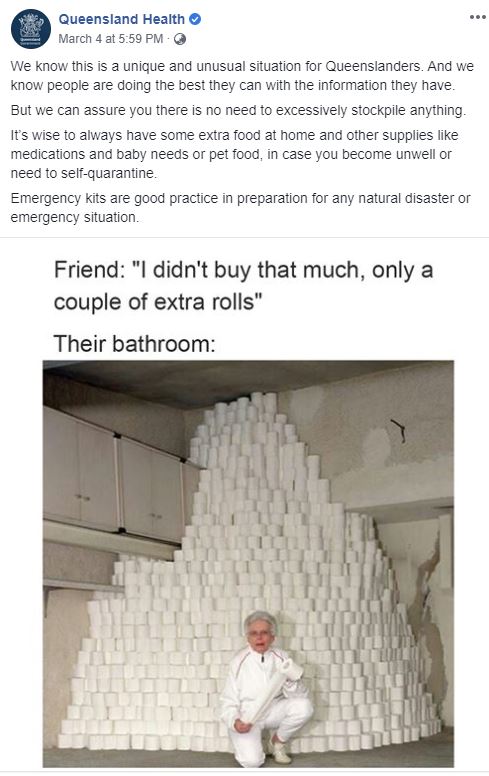
Queensland Health Facebook post
Novel coronavirus in Queensland – the story so far
Twenty cases of novel coronavirus (COVID-19) have been confirmed in Queensland since the outbreak began in late January. This number includes three people from the Diamond Princess cruise ship.
Yesterday, the World Health Organisation officially described COVID-19 as a pandemic.
The word pandemic comes from two Greek words meaning ‘across the people’ and is used to describe the global spread of a disease or virus.
The chief of WHO has said this pandemic is unusual in two ways.
“This is the first pandemic caused by a coronavirus,” Dr. Tedros Adhanom Ghebreyesus said.
“And we have never before seen a pandemic that can be controlled, at the same time.”
In Queensland, eight patients of the 20 confirmed cases have been clinically cleared by treating teams and discharged from hospital, as of Wednesday, 11 March 2020.
Across Australia, 112 cases of novel coronavirus (COVID-19) have been confirm, resulting three deaths, in Australia.
What you need to know about Novel Coronavirus (COVID-19)
Epidemics happen when a lot of people in one community get an infectious disease.
A pandemic happens when there are multiple epidemics of the same disease in communities across the world.
Epidemics and pandemics can affect many parts of our lives and the way normal systems are run.
In Australia, you will have advanced notice if you need to do anything out of the ordinary to prepare for an epidemic or pandemic.
When looking at coronaviruses though a microscope, they look kind of like a crown, which is how they got their name.
Once scientists figured out exactly what this strain was and how to identify it in tests, they gave it the name SARS-CoV-2.
When someone gets sick, the illness is called COVID-19.
Coronaviruses are a large family of viruses that cause illness ranging from the common cold to more severe diseases such as Severe Acute Respiratory Syndrome (SARS) and Middle East Respiratory Syndrome (MERS).
Novel coronavirus (COVID-19) was discovered in 2019 when a higher than normal number of people in Wuhan, China, started to get pneumonia after having an illness similar to the flu.
When doctors tested them, they found these people had a type of coronavirus they hadn’t seen before.
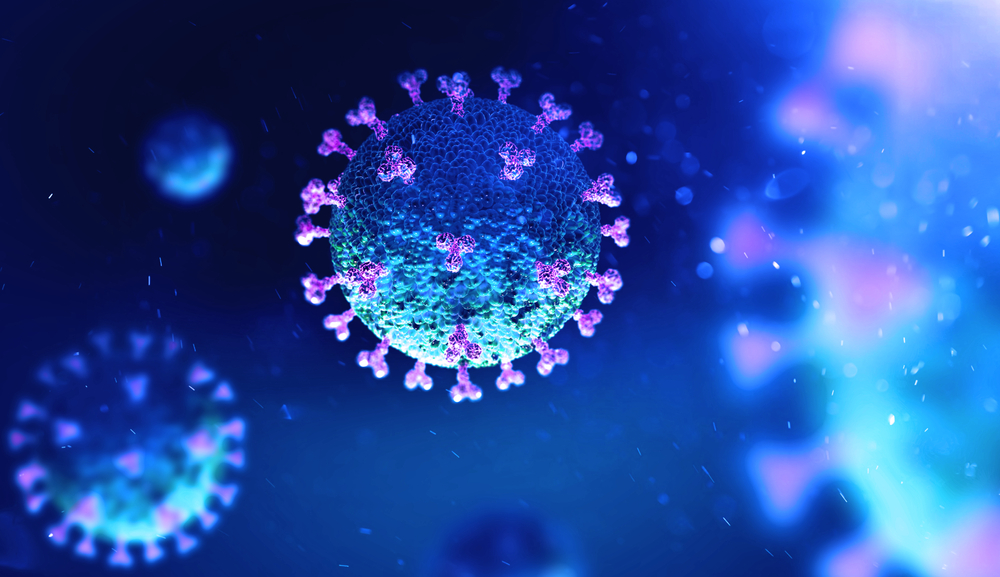
Novel coronavirus (COVID-19) under the microscope
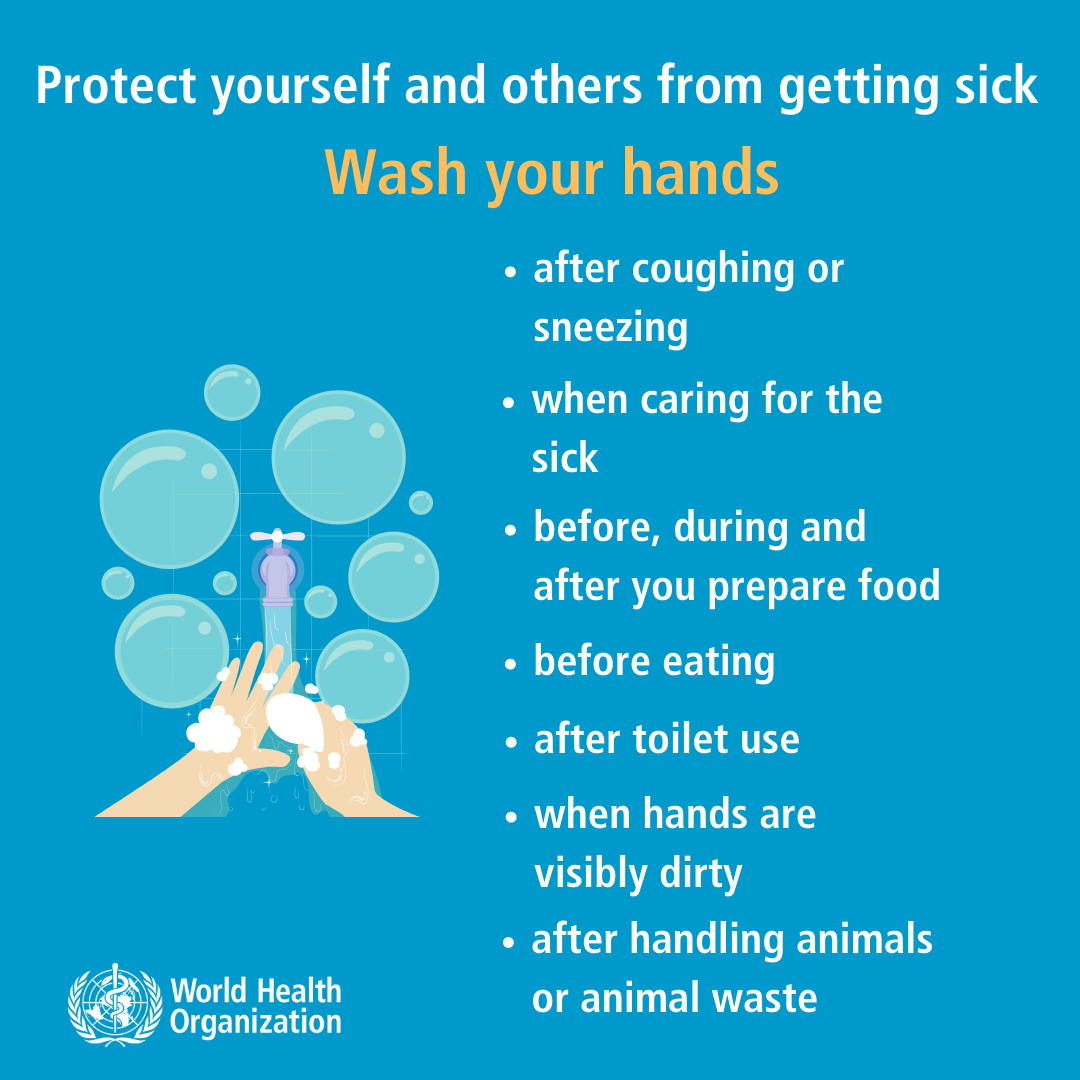
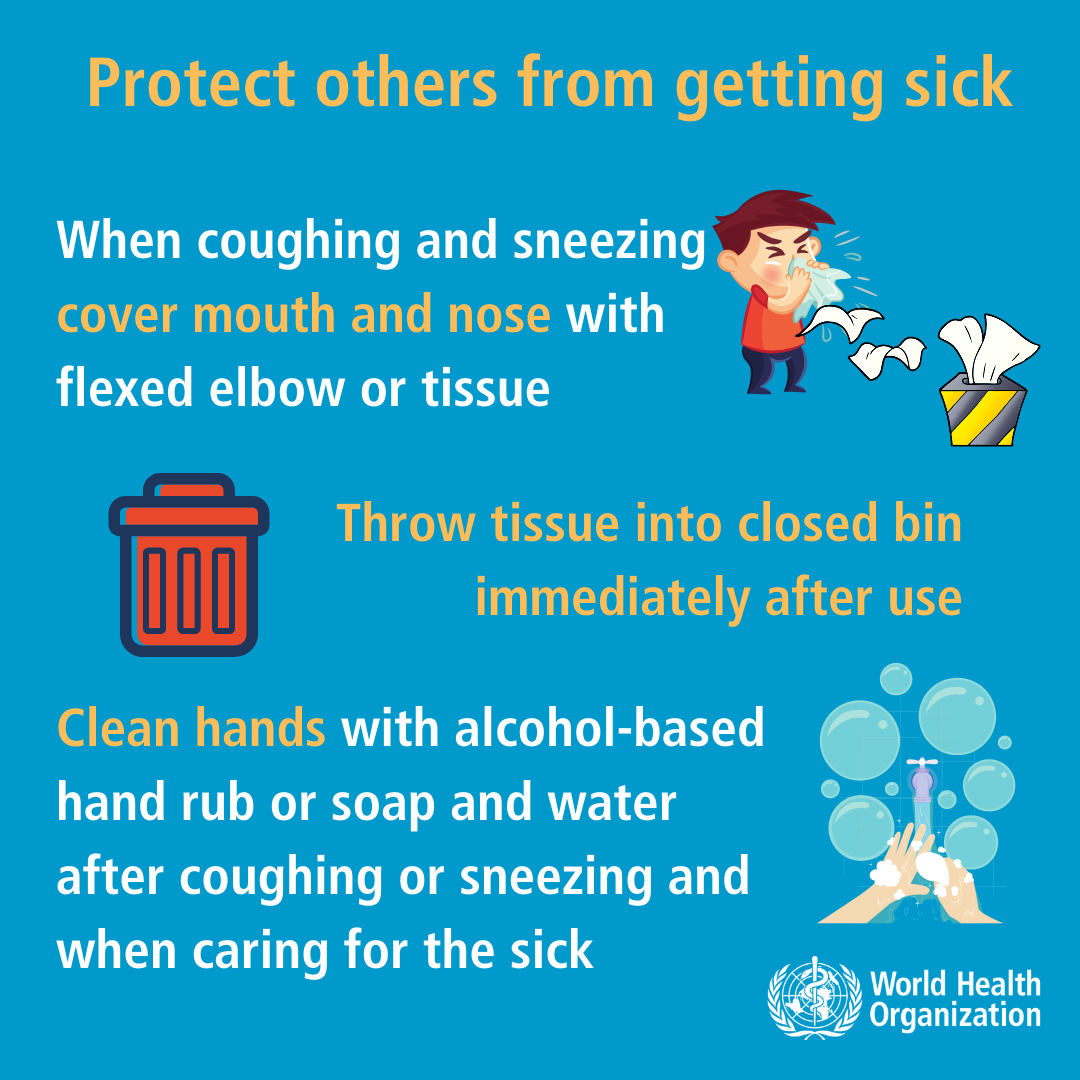
Novel coronavirus (COVID-19) spreads between people, usually when a sick person coughs or sneezes.
Washing your hands often and properly means that you can prevent viruses from entering your body.
That means washing your hands when you’ve been out and about and before you eat (and after you go to the toilet).
Try to stay at least 1.5 metres away from people who are coughing or sneezing.
You might have heard that things like eating lots of garlic, taking extra vitamins, doing certain exercises, or burning heaps of essential oils can stop you from catching novel coronavirus (COVID-19).
Queensland Health advises that this isn’t true.
They do recommend eating a healthy, balanced diet, regular physical activity, sleeping well and reducing stress.
There isn’t any evidence that wearing a facemask will stop people from catching a virus like novel coronavirus (COVID-19), so healthy people don’t need to wear a facemask.
Sick people with symptoms of novel coronavirus (COVID-19) should wear a facemask, if they have one, when going to medical appointments.
This is to protect others from contracting novel coronavirus (COVID-19) from the sick person.
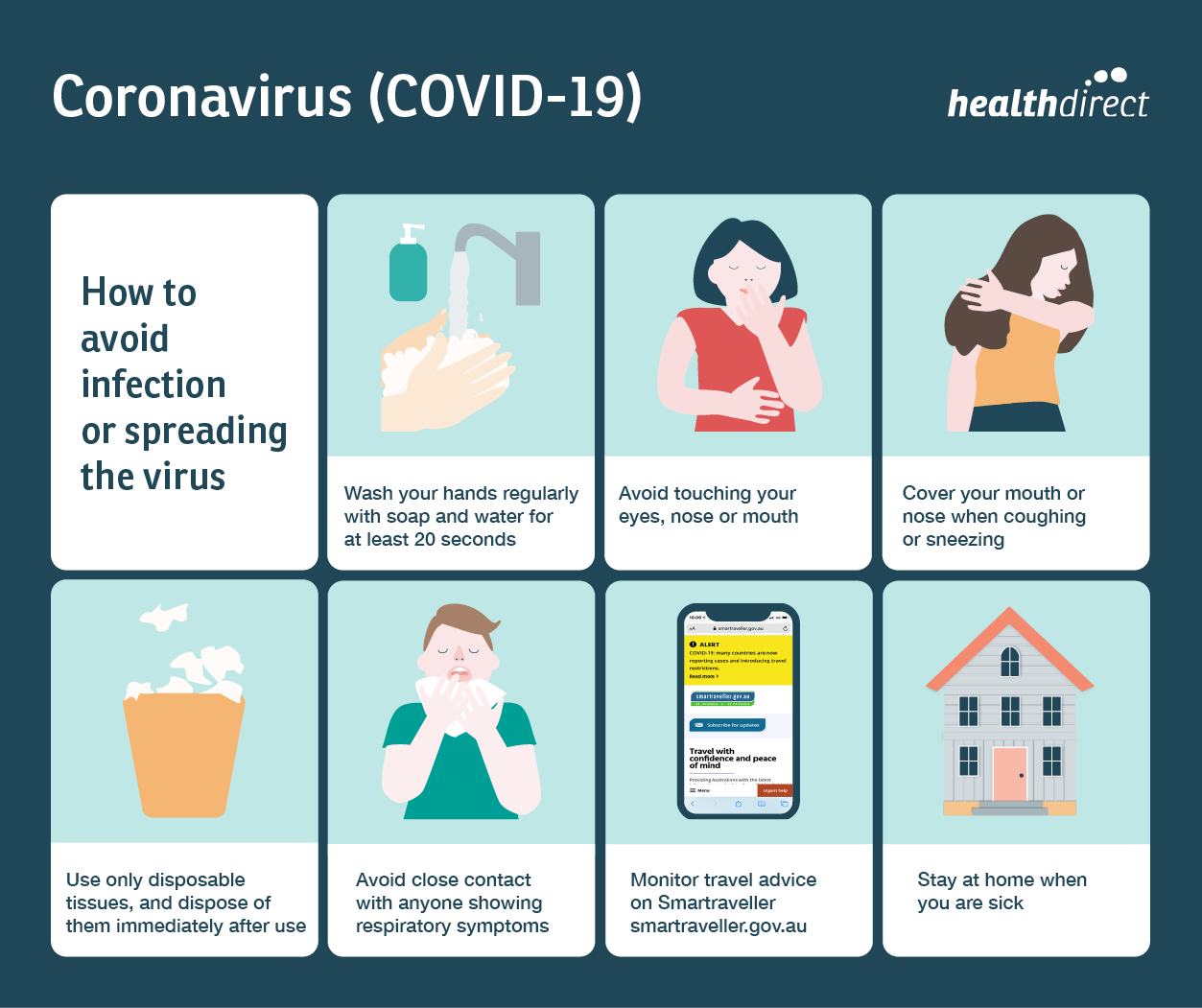
Queensland Health have said as they haven’t had many cases in Queensland yet, it’s too early to tell exactly how this virus will affect Queenslanders.
They expect that most people in Queensland who catch novel coronavirus (COVID-19) will experience a mild illness, like a cold, that lasts a few weeks.
The best things to do right now are keeping up to date with information, wash hands often and properly, stay 1.5 metres away from people coughing or sneezing and stay home if unwell.
For more information visit Queensland Health’s Novel coronoviurs (COVID-19) page here.
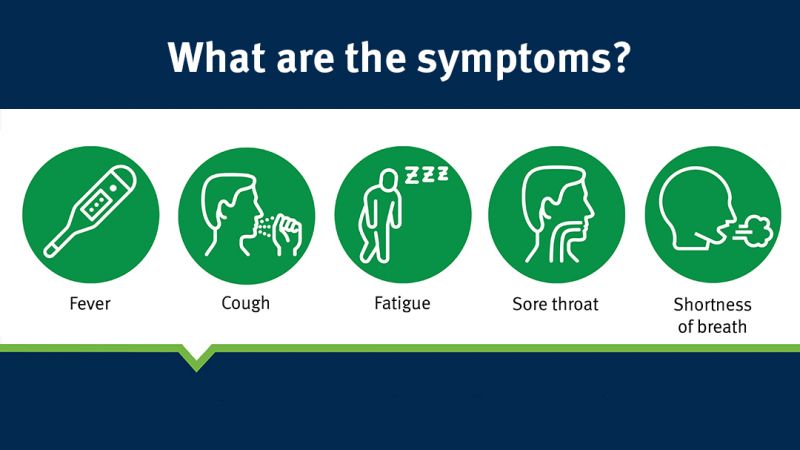
Symptoms of viral infections can vary slightly between people
What to do if you think you many have symptoms of coronavirus
If you become unwell and think you may have symptoms of coronavirus, seek medical attention.
Call ahead of time to book an appointment.
Tell your doctor about your symptoms, travel history and any recent close contact with someone who has coronavirus.
If you must leave home to see your doctor, wear a surgical mask (if you have one) to protect others.
If you have serious symptoms such as difficulty breathing, call 000 for urgent medical help.
Find out what happens if you have a suspected case of coronavirus.
West Moreton Health advises 13 HEALTH is the first point of contact for anyone who is feeling unwell.
A registered nurse will listen to your symptoms over the phone and advise whether you should see your GP or visit the Emergency Department of your local hospital.
If you are advised to go to the doctor or hospital, phone ahead to let them know you are coming.
If the situation is an emergency, call Triple Zero (000).
Read also:
>>> Milestone reached: Ipswich Hospital serves the community for 160 years

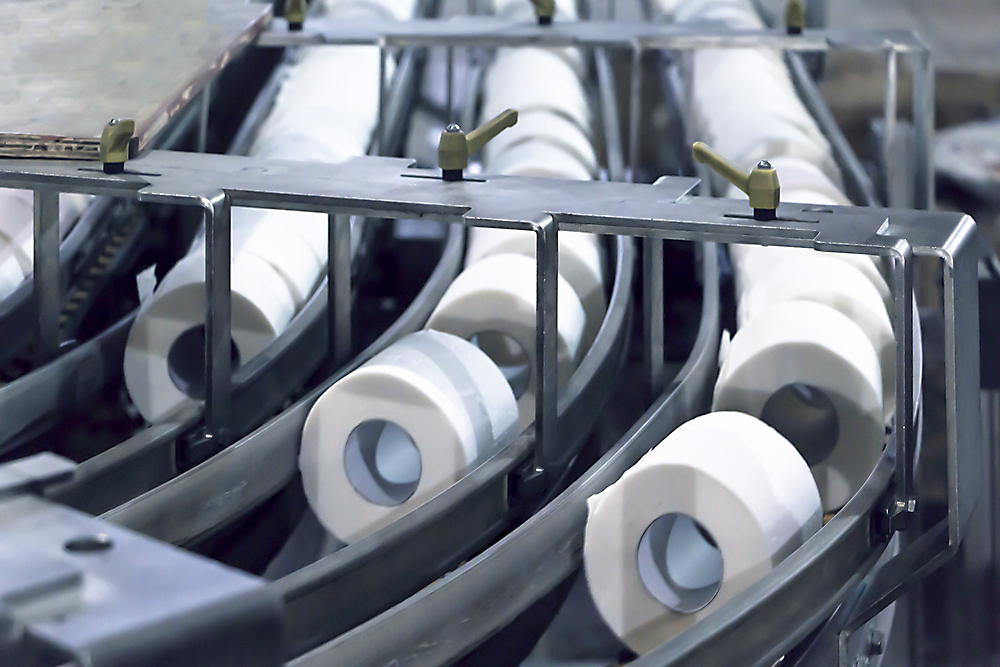

Thanks for helping to keep us informed. I really appreciate it. During this regrettable time of social distancing, technology is playing a vital role in enabling people to feel less isolated.